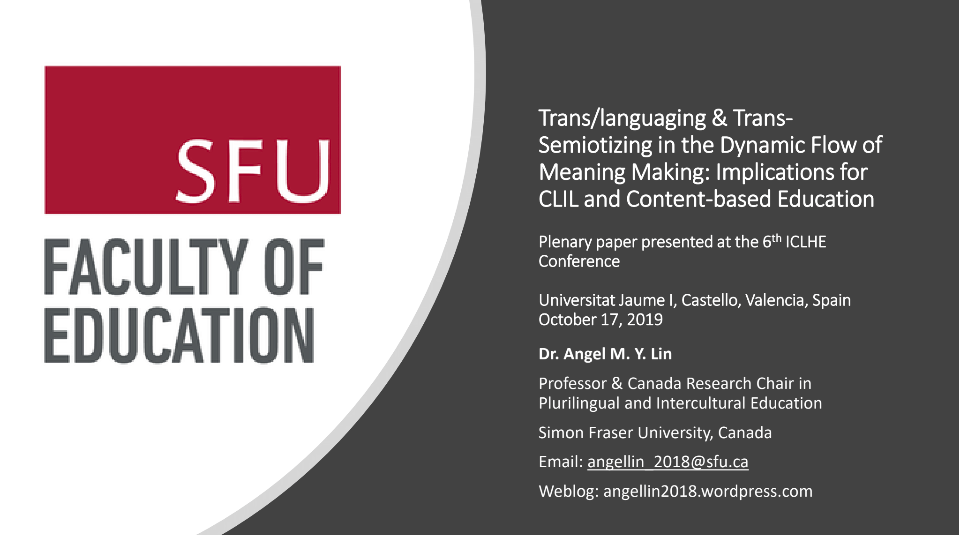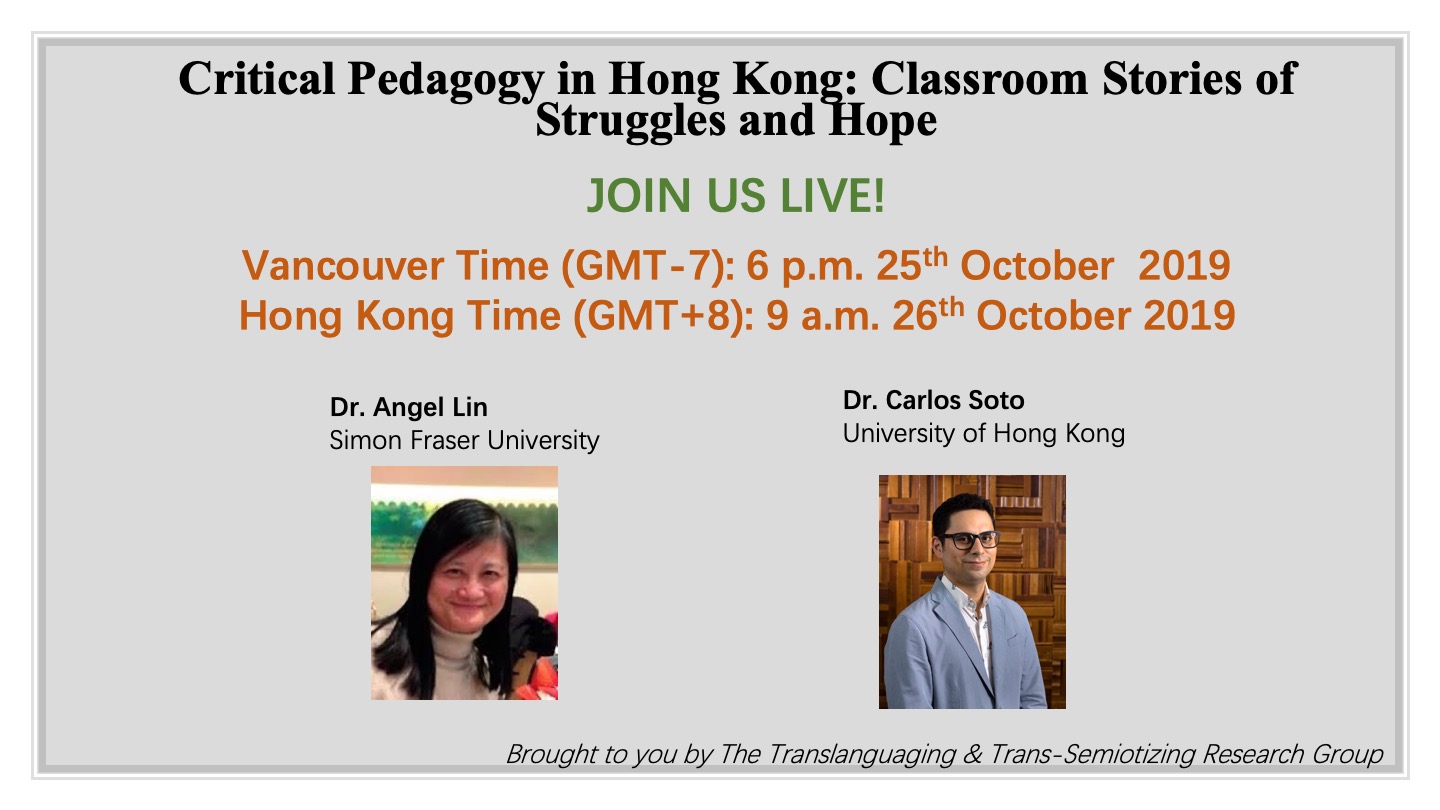Interactional Ethnography as a logic-of-inquiry: Tracing the levels of analytic scale to understand what is being dialogically and socially constructed with students
•Live stream seminar with Judith Green scheduled on May 29, 2020, 6:00 pm (Vancouver Time); 9:00 pm (Pennsylvania time); May 30, 2020, 9:00 am (Hong Kong Time; 10:00 am Japan time; 11:00 am Melbourne time)
ALL ARE WELCOME!
To join online real-time or to view anytime afterwards, please click on the following link and open it on Youtube:
https://www.youtube.com/watch?v=978b4zBB7mU
Link to Article: https://www.dropbox.com/s/byf5w2ehsq8…
Link to a previous talk by Dr. Judith Green: https://education.ucsb.edu/news/2018/…
Judith Green is a Distinguished Professor Emeritus in the Department of Education, where she worked from 1990-2016. Her teaching and research focus on teaching-learning relationships, disciplinary knowledge as socially constructed, and ethnographic research and discourse studies of the patterns of everyday life in classroom. Questions that she explores in her research and in her classes include: How do children gain access to school knowledge? What counts as literacy and learning in school settings? How is disciplinary knowledge socially constructed? What opportunities for learning are constructed in classrooms, and who has access to these opportunities? How does the theory you select shape your research questions, the methods you use, and the claims that you can make about a phenomenon?
The ‘Translanguaging & Trans-Semiotizing Research Group’ Channel aims at building a Community of Practice (CoP) of both emergent and experienced scholars for academic exchange on Translanguaging and Trans-semiotising research and pedagogies. It serves as a bridge between theory and practice, an interactive platform for intellectual dialogues across different generations and diverse contexts, a space for imagination, criticality and creativity, and an innovative Public Pedagogy forum for 21st Century students, teachers and researchers.





Hi All, please share this online seminar notice widely :)!